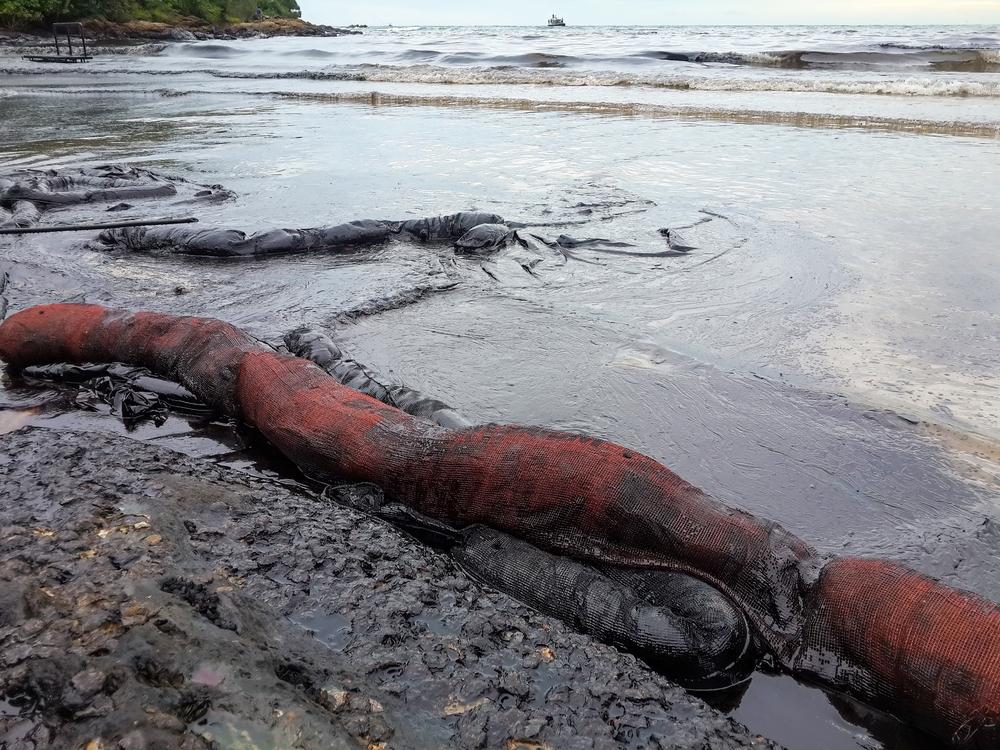Officials estimate that up to 200,000 tons of soil may have been impacted.
Others are reading now
Oil spills are among the most destructive environmental disasters, leaving long-lasting impacts on marine ecosystems and coastal communities.
When oil seeps into the ocean, it spreads rapidly, coating everything in its path, from seabirds to sandy shores.
These incidents highlight the fragile relationship between industrial activity and nature, often serving as a grim reminder of the risks posed by transporting large quantities of oil.
A recent oil spill in the Black Sea is an example of these challenges, according to Digi24.
Also read
Spread Along Southwestern Russian Coastline
In December, two Russian tankers, Volgoneft-212 and Volgoneft-239, sank during a storm in the Kerch Strait, which lies between Russia and Crimea.
Together, the vessels were transporting 9,200 tons of fuel oil, of which approximately 40% — over 3,600 tons — leaked into the sea.
The spill has since spread along the southwestern Russian coastline and into the annexed Crimean region, affecting beaches and marine habitats.
Russian authorities and volunteers mobilized quickly for a massive cleanup operation.
Thus far, nearly 73,000 tons of contaminated sand have been removed from affected areas. However, the damage is far from contained.
Officials estimate that up to 200,000 tons of soil may have been impacted, leaving miles of coastline polluted.
The spill has hit several critical sites, including Kerch beaches and areas near Lake Tobechikskoye.
Photos of cleanup efforts reveal volunteers in white suits shoveling oil-soaked sand, but experts warn that such efforts are insufficient.
Without proper equipment and specialized training, the cleanup process may be slow and hazardous.
Even Russian President Vladimir Putin acknowledged the gravity of the disaster, labeling it an “ecological catastrophe.”
The Kremlin stated that the full extent of the damage is still unknown.
Scientists fear the impact on marine ecosystems could be devastating, as oil spills suffocate marine life, damage habitats, and disrupt food chains for years.

